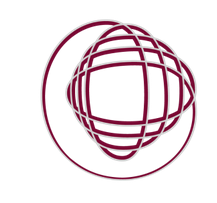Funded by the German Research Foundation (DFG), the Collaborative Research Center (CRC/SFB) Episteme in Motion is dedicated to the examination of processes of knowledge change in European and in non-European pre-modern cultures. This phenomenon deserves particular attention because there has been and still is a tendency to portray the knowledge of these cultures as particularly resistant to change, a tendency detectable both in the ways such cultures have often seen themselves as well as in the ways they have been described from outside. It is our basic thesis that these cultures are subject to constant processes of knowledge change. But this kind of change occurs over extended periods of time, in a subcutaneous fashion and through the differentiation of already existing knowledge as well as through the tacit integration of novel items, so that the traditional toolkit of the History of Knowledge with its focus on indicators of "progress" within narratives of rupture or revolution is no longer sufficient to describe the phenomena we are interested in.

In order to analyze the processes of knowledge change sketched above, the Collaborative Research Center opts for a narrowly defined concept of knowledge subsumed under the term ‘episteme’ which encompasses the areas of "knowledge" and of "science/scholarly activity," while simultaneously defining knowledge as the "knowledge of something," i.e. as knowledge that is invested with a claim to validity. These claims to validity are not necessarily made by explicit reflection, but may also be constituted and reflected in specific forms of representation, particular institutions or aesthetic and performative strategies. The Collaborative Research Center will examine the thesis that knowledge is always constituted through processes of transfer, because every attempt to fix knowledge, pass it on, codify it or edit it didactically involves an element of movement, as does the discarding of previously established knowledge. For this reason, "episteme" is always in motion—even (and especially) where it appears to remain stable.
During the first funding period, three pivotal and interconnected questions arising from the set of problems sketched above will be the focus of our research. First, the different ways have to be examined through which the validity of knowledge is claimed and through which knowledge is invested with these claims. Which institutional conditions and social circumstances, which forms of representation through media or aesthetic strategies are conducive to the constitution of knowledge? How are knowledge and the processes of its constitution reflected in these forms? The differentiation of the concept of transfer and the clarification of its relationship to the concept of tradition is a further essential task. A third question relates to the issues of time, history and historicity, with a particular focus on the historicity of knowledge itself which in turn may be capable of supplying paradigms for the perception of history as an issue in general.
In order to answer these questions, the research project will adapt methodological and theoretical concepts from the newly developing field of Global History, a discipline which expressly aims to overcome Eurocentric perspectives. Its objective is to further differentiate these concepts, which have exclusively been developed for modern phenomena, with the purpose of rendering them applicable to the pre-modern period. In the course of its research, the Collaborative Research Center will also draw on the methodological and theoretical inventory of recent work on the History of Knowledge. With its more sharply contoured concept of knowledge the Collaborative Research Center seeks, however, to overcome various types of methodological aporia that the recent History of Knowledge paradigm has given rise to as a consequence of the excessive fuzziness of its concept of knowledge’s boundaries.
The Collaborative Research Center is structured according to three project areas representing the basic forms in which knowledge constitutes itself (telling, showing, doing). The actual methodological and theoretical work will take place in specially designated concept groups, which will be dedicated to the topics "Transfer and Transculturality," "Time and Historicity," "Representation and Mediality," and "Structure and Knowledge Change" during the initial funding period. The methodological and theoretical work in the concept groups will begin by examining specific phenomena from the individual disciplines and will lead to a further development of the initial terminology as various topics, methods and theoretical approaches are tested. The concept groups will also develop lines of inquiry for the next funding period. A so-called "transfer project" is dedicated to the materiality of knowledge and the way in which it can be approached in a museum context. This will also make it possible to introduce the Collaborative Research Center’s ideas and results into a museum context and to make them accessible to a broader public. The Collaborative Research Center can draw on a unique reservoir of academic disciplines examining the history of culture, art and literature both at the Freie Universität in particular and in Berlin as a whole. An excellent infrastructure of libraries and museums, offering plentiful possibilities for the further development of the project in future funding periods, lends further support to the project. Even at this early stage a further integration of the history of knowledge in the fields of science and of the history of pedagogy is being envisaged. A variety of promising cooperative projects with international partners, all of them already in a concrete stage of planning, will provide the Collaborative Research Center with a high degree of visibility and influence that reaches far beyond the national framework.

